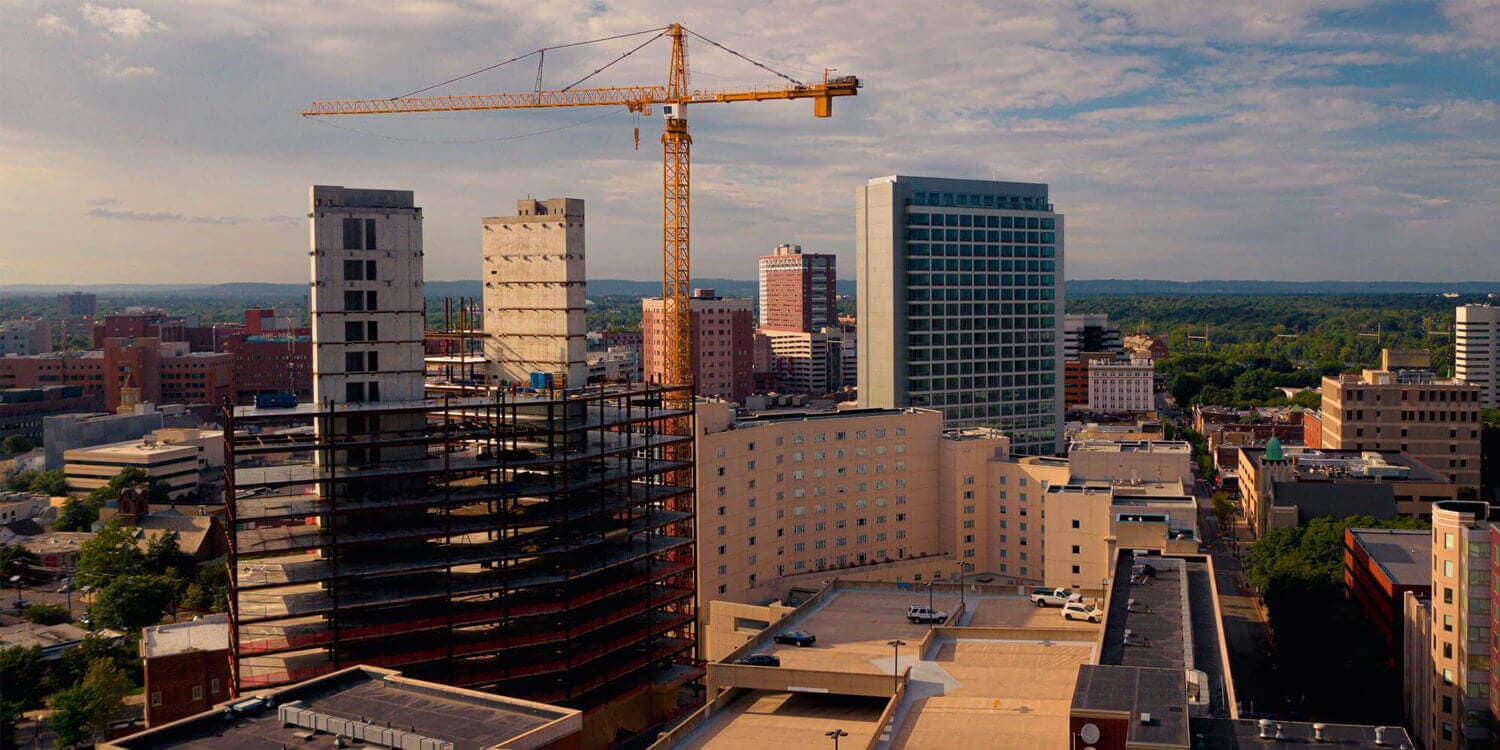COVID-19 Forcing Developers in New Brunswick, Elsewhere to Rethink Collaborative Spaces

NEW BRUNSWICK, NJ — The COVID-19 pandemic is reshaping the future of collaborative spaces, such as the massive one planned for downtown New Brunswick, the president of DEVCO said Tuesday.
Chris Paladino said the virus that has resulted in almost 14,000 confirmed deaths in the Garden State will likely impact the design of projects such as The Hub, a mixed-use space where academic, medical and corporate partners will intersect on a 1.7 million square foot tract across from the New Brunswick train station.
Since The Hub was originally conceived, the need for social distancing and safe work environments has overtaken the desire for cool chairs and flashing lighting, and the ability to anticipate the ebb and flow of workers has become a must.